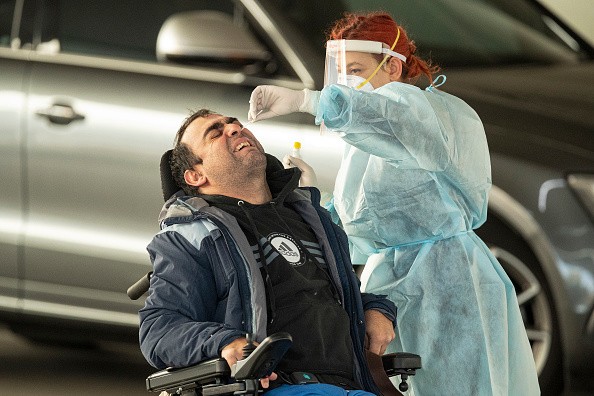People with developmental and intellectual disabilities who need help with their daily living and are more vulnerable to serious infections, including COVID-19, are still on the waiting list for vaccinations.
Prioritization of vaccines in group homes depends on every state

USA Today reported Allen Lesser's life, who missed out on the trip to Florida every January for decades. Meanwhile, Elise Kellman had to cut back on her working hours at Walgreens, and her best friend Christine Buda took her art classes online instead of in person. These three people could not go out in Manhattan, where they live together in Schafler House, a group home.
Roseanne Giannotta, the residential coordinator for Schafler and a program for medically fragile people with intellectual disabilities in New York City, said that Lesser, Kellman, and Buda are bored and want to get their life back. They are all survivors of COVID-19 in spring and are among the first people with intellectual disabilities in America to receive the COVID-19 vaccine.
In New York, the state prioritizes people with disabilities living in group homes, even if they are not in full-time nursing care. However, the priority level for people living in group homes across the country depends on every state, even if the outbreak showed they are two-to-three times potentially more exposed to and die from the virus than the general population.
Sam Crane, legal director of the Autistic Self Advocacy Network, which represents people on the autism spectrum, explained that people who live in congregate settings are particularly high risk as they need in-person services and cannot distance themselves from staff. Crane said that these risk factors are particularly significant to people with intellectual disabilities to be prioritized for COVID-19 vaccination in an email.
The Centers for Disease Control and Prevention (CDC) committee recommended people in "long-term care facilities" be included in the first group to be vaccinated. Crane and others urged the CDC to clarify that group homes' caregivers and residents must be prioritized, with people to receive in-person at-home services.
Nearly 2% of the population of more than seven million Americans have intellectual or developmental disabilities, and almost 10% of them live in a supervised residential setting called a group home. People with developmental and intellectual disabilities who are Hispanic, Asian, Black, or Native American could catch COVID-19 than the white population, as per a recent study.
Moreover, New York City had different priorities for COVID-19 vaccination with intellectual and developmental disabilities, Levy claims. But she is unsure when people with disabilities living in the community will be eligible for vaccination outside New York, although they are at risk for infection.
Read also: Wisconsin To Start Receiving COVID-19 Vaccines Weeks Later Than the Other States
People with disabilities will soon be able to get the COVID-19 vaccine
The donation from Texas Tech University Health Sciences Center El Paso helped people with developmental and intellectual disabilities be administered COVID-19 vaccines. KTSM reported that TTUHSC El Paso and Emergence Health Network (EHN) would distribute the vaccines to several clients who might not have access to the vaccine.
People with disabilities with underlying medical conditions could put them at a higher risk of severe COVID-19 infection. Nearly 3,000 Moderna COVID-19 vaccines arrived at the Texas Tech Physicians, Kenworthy, and Transmountain clinics on December 23. TTUHSC El Paso works with community partners in determining how El Paso can serve the recent round of vaccines at its best.
People with disabilities feel they were forgotten during the pandemic
Research has revealed two-thirds of people with disabilities think they have been forgotten during the COVID-19 pandemic. According to Express, a study involving 1,000 adults with mental health conditions or physical disabilities found 45% felt lonely, while 50% felt depressed due to the COVID-19 pandemic.
Read also: People who Received Moderna or Pfizer COVID-19 Vaccine Must Get Two Full Doses, FDA Reiterates
© 2026 HNGN, All rights reserved. Do not reproduce without permission.








